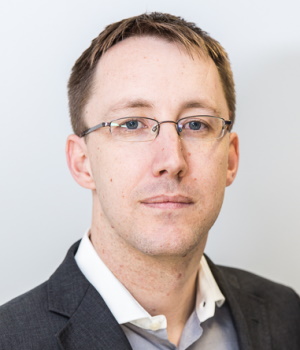Bradley Elliott
Senior Lecturer in Human Physiology and lead of the Translational Physiology Research Group, University of Westminster

His research interests focus on understanding losses in human muscle and metabolic function with ageing, with particular focus on the endocrine signatures of biological ageing.
Trustee Profile
Bradley is on the society’s board of trustees.
Tell us a bit about your career development
My career has been defined by international movement. I did my first degree in Sport & Exercise Sciences at the University of Auckland, New Zealand. After my degree I worked at the University of Auckland as a research assistant, studying muscle growth and hypertrophy in both humans and small animal models. As part of this project, I was corresponding with several research groups around the world, and one of them invited me to join their research masters programme in experimental medicine at Université Laval, Canada where I worked on muscle atrophy mechanisms in COPD. After this, I ended up at the University of Westminster in London where I did my PhD in muscle atrophy and acute hypoxia. Typically for me, I completed my PhD whilst still moving about, completing one chapter’s worth work at Westminster, one at the University of Brighton, and one at University of California, San Diego. After my PhD I was lucky enough to be offered a permanent post and so stayed on at the University of Westminster where (6 years later) I’m now Senior Lecturer in Physiology and lead the Translational Physiology Research Group.
At every stage of my training, I studied muscle physiology, both metabolic and atrophic mechanisms. As I took my first permanent post and was given the academic freedom to pursue any research question I wished, the loss of muscle function with ageing seemed the most important topic I could focus on.
Why is your area of research important in our understanding of the biology of ageing?
In the Western world we’re each highly likely to live long enough to experience the physiologically negative effects of ageing, however the declines in physiology function with age is very variable amongst different people. Whilst academically I’ve always known this, the importance of this was recently driven home when visiting elderly relatives in New Zealand. Despite similar chronological ages, each had vastly different lifestyles and showed different “biological ages”. Why different people experience biological ageing at different rates fascinates me and speaks to the deeper question of how humans age, what we can do about it, and what biologically is intrinsic vs secondary or external factors.
Has the being a BSRA trustee been valuable for your professional development?
A major part of being a BSRA trustee has been the exposure to such a wide variety of approaches and models to study the question of ageing. I’ve always been very translationally / human physiologically focused, so the exposure and discussions with peers who use various basic science models and the interesting cross-discussions that result have been truly fascinating (“you’ve found a molecule in fruit fly that promotes longevity? You’ve found a key gene in immortal jellyfish? I bet that’d be interesting in humans during age-related diseases if we can find a parallel!”).
Is there anything interesting you’d like to share about yourself?
I was a student athlete who fell into the sciences by accident, picking my first degree (Sport & Exercise Sciences) because it sounded like the most fun option. I was wrong (it was incredibly hard work!) but luckily, I discovered physiology and my research career to date via this degree.
Through circumstances that I don’t really understand, I’ve been involved in a lot of scientific documentaries about physical activity and human ageing, both in front of and behind the camera. That plus my writing for syndicated print media such as The Conversation has added an interested outreach and science communication aspect to my career.
